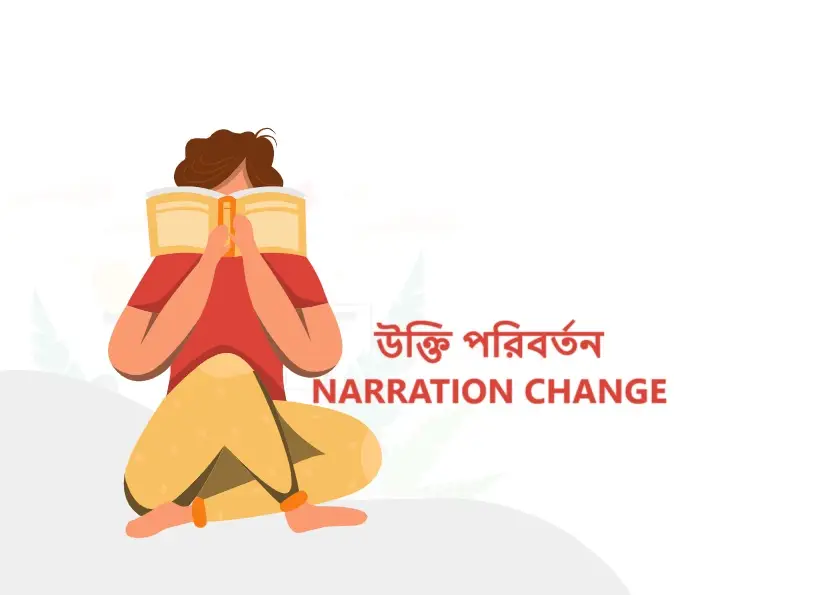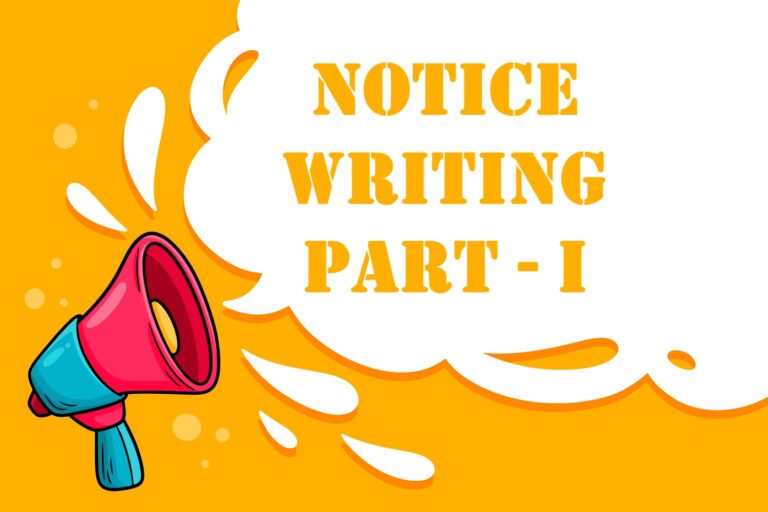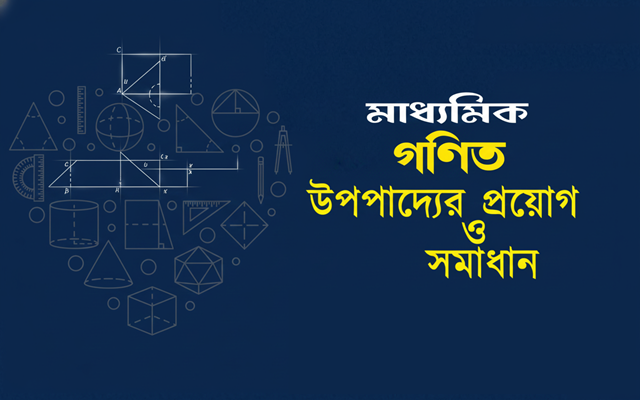
NARRATION-CHANGE-উক্তি-পরিবর্তন
NARRATION CHANGE
উক্তি পরিবর্তন-Narration Change-Direct and Indirect Speech. Detailed explanations with lot of examples for easy understanding and applications.
REPORTING
বাংলা ভাষার মতো ইংরাজীতেও কোনও ব্যক্তির কোন বক্তব্য, অনুরোধ, আদেশ, উপদেশ অন্য কাউকে report করতে হয় এবং বা জানাতে হয়। একে বলে উক্তি পরিবর্তন বা Narration (ন্যারেশন)।
আমরা দুভাবে বক্তার কথাকে Report করতে পারি।
১। বক্তার কথাটি অবিকল তার নিজের ভাষায় প্রকাশ করে
যেমন- রবি বলে, আমি অসুস্থ। Rabi says, “I am ill.”
২। বক্তার কথা অন্যের ভাষায় বলা
যেমন:- রবি বলল যে সে অসুস্থ – Rabi says that he is ill.
- প্রথম বাক্যটিতে বক্তা নিজের ভাষায় যা বলেছে তাকে বলে Direct Speech (প্রত্যক্ষ উক্তি)।
- দ্বিতীয় বাক্যে বক্তার কথাটি অন্যের ভাষায় প্রকাশ করা হয়েছে। একে বলে Indirect Speech (পরোক্ষ উক্তি)।
প্রথম বাক্যটিতে Inverted Comma (“ ”) কমার মধ্যে যে অংশটুকু আছে (“I am ill”) তাকে বলা হয় Reported Speech আর inverted comma-র আগের verb টিকে বলে Reporting Verb.
মনে রাখার বিষয়
a | Reporting Verb এর পরে একটা কমা বসাতে হবে।
b | Reported Speech – টি inverted কমার মধ্যে রাখতে হবে।
c | Direct Speech থেকে Indirect Speech – এ পরিণত করার সময় that conjunction যোগ করতে হয়। এই conjunction – কে Introductory Conjunction বলে।
DIRECT SPEECH
Ramesh(Speaker) said (Reporting verb), “I am ill”( Direct Speech).
INDIRECT SPEECH
Ramesh (Reporter) Said (Reporting verb) That(linker) he was ill(Reported speech).
Note তাহলে Direct Speech থেকে Indirect Speech এ পরিবর্তন করতে কী কী করা হয়েছে? (i) Reporting verb এর পর linker (সংযোজক) হিসাবে that বসানো হয়েছে। (ii) am verb এর past tense হয়েছে (iii) I pronoun টি he হয়েছে
RULES FOR CHANGING DIRECT SPEECH INTO INDIRECT SPEECH
(Direct speech থেকে Indirect speech-এ পরিণত করার নিয়ম)
CHANGE OF TENSES
Direct Indirect
- Present Indefinite Past Indefinite
- Present Continuous Past Continuous.
- Present Perfect Past Perfect
- Present Perfect Continuous Past Perfect Continuous
- Past Perfect Past Perfect
- Past Continuous Past Perfect Continuous
- Future shall/will Future should/would.
Change in time and place expression in past tense.
Direct Indirect Direct Indirect
Now then here there
Ago before hence thence
This that today that day
These those tonight that night
Thus that way tomorrow the next day
Yesterday the previous day thus so
Last Night The previous night come go
-
Narration change of Assertive Sentences
(বিবৃতিমূলক বাক্যের উক্তি পরিবর্তন)
Direct: Naren says, “I live with my uncle.” (নরেন বলে, “ আমি আমার কাকার সঙ্গে থাকি”)
Indirect : Naren says that he lives with his uncle.(নরেন বলল যে সে তার কাকার সঙ্গে থাকে)
Direct : Biman says, “Asim is a good boy.” (বিমান বলে, “অসীম ভালো ছেলে”)
Indirect : Biman says that Asim is a good boy.
Direct : Bidhan says, “ My father teaches me mathematics.” (বিধান বলে, “আমার বাবা আমাকে অঙ্ক শেখান”)
Indirect : Bidhan says that his father teaches him mathematics. (বিধান বলে যে, তার বাবা তাকে অঙ্ক শেখান)
Direct: Sovan says, “I cannot walk so fast. ‘(শোভন বলে, আমি এত তাড়াতাড়ি হাঁটতে পারি না)
Indirect : Sovan says that he cannot walk so fast.
Note : উপরের বাক্যগুলিতে Reporting verb গুলি present ছিল। তাই Indirect এ তার কোনো পরিবর্তন হয়নি।
- Reporting verb যদি Future tense -এ থাকে তাহলে Reported Speech যে tense থাকুক না কেন Indirect speech এ পরিবর্তন করার সময় তার কোনো পরিবর্তন হয় না।
যেমন-
Direct: I shall say, “I went to kolkata.” (আমি বলব, আমি কলকাতায় গিয়েছিলাম।)
Indirect: I shall say that I went to kolkata.(আমি বলব যে আমি কলকাতায় গিয়েছিলাম।)
Direct: I shall say, “He is poor.” (আমি বলব, “সে দরিদ্র।)
Indirect : I shall say that he is poor.(আমি বলব যে, সে দরিদ্র।)
- উপরের sentence গুলিতে Reporting verb এর কোন পরিবর্তন না ঘটিয়ে Direct speech থেকে Indirect speech করা হয়েছে। এবার Reporting verb এর পরিবর্তন ঘটিয়ে কীভাবে তা হয় তা দেখানো হচ্ছে।
Direct: Mina said, “I am happy.(মীনা বলল, আমি সুখী।)
Indirect : Mina said that she was happy. (মীনা বলল যে, সে সুখী।)
Direct : Aparna said, “My mother is not at home.(অপর্ণা বলল, আমার মা বাড়িতে নেই।)
Indirect : Aparna said that her mother was not at home.(অপর্ণা বলল যে, তার মা বাড়িতে নেই।)
Direct: Nobin said to Robin, “I believe you,”(নবীন রবীনকে বলল, “আমি তোমাকে বিশ্বাস করি”।)
Indirect : Nobin told Robin that he believed him. (নবীন রবীন কে বলল যে, সে তাকে বিশ্বাস করে।)
Direct: Satya said to me,” I am a student,”(সত্য আমাকে বলল, “ আমি একজন ছাত্র”।)
Indirect : Satya told me that he was a student, (সত্য আমাকে বলল যে, সে একজন ছাত্র।)
বিঃদ্রঃ যদি Direct sentence -এ said to থাকে তাহলে Indirect speech এ said টি told হবে।
- যদি চিরন্তন সত্য ও প্রতিদিনের অভ্যাস বোঝায় তবে Reporting verb টি past tence-এ থাকলেও Direct speech কে Indirect speech -এ পরিণত করতে reported speech এর verb এর কোনো পরিবর্তন হয় না যেমন,
Direct : Mother said, “God is good,(মা বললেন, “ঈশ্বর মঙ্গলময়।”)
Indirect : Mother said that God is good,(মা বললেন যে, ঈশ্বর মঙ্গলময়।)
Direct :Father said, “The earth moves round the sun.“ (বাবা বললেন, “পৃথিবী সূর্যের চারদিকে ঘোরে।)
Indirect : Father said that the earth moves round the sun.(বাবা বললেন যে, পৃথিবী সূর্যের চারদিকে ঘোরে।)
Direct : The teacher said, “Man is mortal.”(শিক্ষক মহাশয় বললেন, “মানুষ মরণশীল।”)
Indirect: The teacher said that man is mortal(শিক্ষক মহাশয় বললেন যে, মানুষ মরণশীল।)
- যদি reporting verb টি past tense এ থাকে তাহলে এবং reported Speech এর verb টি যদি past continuous tense এ থাকে তাহলে Indirect করার সময় verb টি past perfect continuous tense হবে। যেমনঃ
Direct : Sugata said to me, “ I was reading Bibhuti Bhushan’s Pather Panchali then.”(সুগত আমাকে বলল, “আমি তখন বিভূতিভূষণের পথের পাঁচালি পড়ছিলাম।“)
Indirect : Sugata told me that he had been reading Bibhuti Bhushan’s Pather Panchali then. (সুগত বলল যে, সে তখন বিভূতিভূষণের পথের পাঁচালি পড়ছিল।)
Direct : Apu said to his friend, “I was going to play ground yesterday.” (অপু তার বন্ধু কে বলল, “আমি গতকাল খেলার মাঠে যাচ্ছিলাম”)
Indirect : Apu told his friend that he had been going to the play ground the day before.(অপু তার বন্ধুকে বলল যে, সে গতকাল খেলার মাঠে গিয়েছিল।)
- Reporting verb-টি যদি past tense -এ থাকে এবং Reported speech এর verb –টি যদি future Indefinite থাকে তবে indirect -এ reported speech. এর shall এর জায়গায় should ও will এর জায়গায় would হবে। যেমন :
Direct: Bablu said, “I shall take rice. “(বাবলু বলল, আমি ভাত খাব
Indirect: Bablu said that he would take rice.(বাবলু বলল যে, “সে ভাত খাবে”)
Direct: Father said, “We shall leave for Puri tomorrow”. (বাবা বললেন, “আমরা আগামীকাল পুরী যাব”)।
Indirect : Father said that they would leave for Puri next day. (বাবা বললেন যে, তারা আগামীকাল পুরী যাবেন
Direct: Subrata said to me,” Bina will surely come.” (সুব্রত আমাকে বলল, “বীনা নিশ্চয়ই আসবে”)
Indirect : Subrata told me that Bina would surely come. (সুব্রত আমাকে বলল যে, বীনা নিশ্চয়ই আসবে।)
- যদি reporting verb -এবং reported speech -এর verb দুটিই past tense হয়, তাহলে simple past রাখতে হবে। যেমন।
Direct: The teacher said, “Babar was the first emperor of the Moghal empire.”(শিক্ষক মহাশয় বললেন, “ বাবর মোগল সাম্রাজ্যের প্রথম সম্রাট।”
Indirect : The teacher said that Babar was the first emperor of the Moghal empire.(শিক্ষক বললেন যে, বাবর মোঘল সাম্রাজ্যের প্রথম সম্রাট।)
Direct: The student answered, “Ashoke was a great emperor.” (ছাত্রটি উত্তর দিল, “অশোক একজন শ্রেষ্ঠ সম্রাট ছিলেন।”)
Indirect : The student answered that Ashoke was a great emperor. (ছাত্রটি উত্তর করল যে, অশোক একজন শ্রেষ্ঠ সম্রাট ছিলেন।)
2. NARRATION CHANGE OF INTERROGATIVE SENTENCES
(প্রশ্নবোধক বাক্যের উক্তি পরিবর্তন)
- INTERROGATIVE SENTENCE এর INDIRECT SPEECH এ পরিণত করার নিয়মাবলিঃ
- প্রশ্নবোধক direct speech -কে indirect speech -এ পরিণত করতে হলে প্রথমে sentence টিকে Assertive sentence -এ রূপান্তরিত করতে হবে।
- Reporting verb টিতে যদি say, tell প্রভৃতি থাকে তবে indirect -এ say, র ক্ষেত্রে ask এবং tell -এর ক্ষেত্রে enquire of বা কোনও কোনও ক্ষেত্রে want to know ব্যবহৃত হয়।
- Introductory conjuntion -এর পরিবর্তে whether বা if বসতে হয়।
যেমন:
Direct : The girl said to her father, “Are the grapes sweet?” (বালিকাটি তার বাবাকে জিজ্ঞাসা করল, “ আঙুরগুলি কী মিষ্টি?”)
Indirect : The girl asked her father whether (or if) the grapes were sweet.
Direct : Subha said to me, “Do you know him?”(শুভো আমাকে বলল, “ তুমি কি তাকে চেন?”)
Indirect : Subha asked me whether I knew him.(শুভো আমাকে জিজ্ঞাসা করল যে, আমি তাকে চিনি কিনা।)
Direct: The teacher said to the student, “Did you come to school yesterday?”(শিক্ষক মহাশয় ছাত্রকে জিজ্ঞাসা করলেন, “তুমি কি গতকাল স্কুলে এসেছিলে ?”)
Indirect : The teacher enquired of the student whether he had come to school the day before.(শিক্ষক মহাশয় জানতে চাইলেন যে, ছাত্রটি গতকাল স্কুলে এসেছিল কিনা।
- INTERROGATIVE SENTENCES এ WHO, HOW শব্দ সহ প্রশ্নবোধক বাক্যে উক্তি পরিবর্তন।
‘Wh’ শব্দ এবং ‘How’ দিয়ে Reported Speech -এ প্রশ্নবোধক বাক্য থাকলে Indirect করার সময় একটিই মাত্র পরিবর্তন হয়। Reporting verb ও Reported Speech -এর সংযোজক হিসাবে Wh শব্দটি বা How কেই ব্যবহার করা হয়। এখানে if, whether বসাতে হয় না। যেমন,
Direct : He said to me, “What are you doing?” (সে আমাকে বলল, “ তুমি কি করছো?”)
Indirect: He asked me what I was doing. (সে আমাকে জিজ্ঞাসা করল যে আমি কি করছি।)
Direct : Rabin said to his brother, “Why are you crying?” (রবীন তার ভাইকে বলল, তুমি কাঁদছো কেন ? )
Indirect : Rabin asked his brother why She was crying. (রবীন তার ভাইকে তার কান্নার কারণ জিজ্ঞাসা করল।)
Direct : My friend said to me, “Where are you going next week?” (আমার বন্ধু আমাকে বলল, “আগামী সপ্তাহে কোথায় যাচ্ছ?”)
Indirect : My friend asked me where I was going the week after. (আমার বন্ধু আমাকে আগামী সপ্তাহে আমি কোথায় যাব জিজ্ঞাসা করল।)
Direct: The teacher said to student, “Which is the right answer one among these answers?”(শিক্ষক মহাশয় ছাত্রকে বললেন, এগুলির মধ্যে কোনটি সঠিক উত্তর?)
Indirect : The teacher asked the student which among those answers was the right one.(শিক্ষক মহাশয় কে ছাত্রের কাছে জানতে চাইলেন এই উত্তরগুলির মধ্যে কোনটি ঠিক)
Direct : The doctor said to the nurse, “How is the patient today?” (ডাক্তার নার্সকে বললেন, “আজ রোগী কেমন আছে ?”)
Indirect :The doctor asked the nurse how the patient was that day. (ডাক্তার নার্সের কাছে রোগী কেমন আছে জানতে চাইলেন)।
-
NARRATION CHANGE OF IMPERATIVE SENTENCE (আদেশ, উপদেশ, অনুরোধ মূলক বাক্যের উক্তি পরিবর্তন)
আদেশ, উপদেশ, অনুরোধ মূলক বাক্যের উক্তি পরিবর্তনের নিয়মাবলি :
i) Reported Speech – Imperative mood – infinitive mood- এ পরিবর্তিত করতে হবে।
ii) বাক্যটির অর্থ বুঝে reporting verb-টির পরিবর্তন করতে হবে।
iii) আদেশ বোঝালে order, tell প্রভৃতি verb – এর ব্যবহার করতে হবে। উপদেশ বোঝালে advise verb টি প্রধানতঃ ব্যবহার করতে হবে। অনুরোধ বোঝালে request, ask, politely, beg প্রভৃতি verb -এর ব্যবহার হয়।
iv) এই ধরনের sentence-এ that linker -এর ব্যবহার হয় না।
Command (আদেশ)
Direct : The teacher said to his students, ” Sit down.”(শিক্ষক তার ছাত্রদের বললেন, “বস”।)
Indirect: The teacher ordered his students to sit down.
Direct : The master said to his servant, “Polish my shoes”.(প্রভু তার ভৃত্যকে বললেন, “আমার জুতো জোড়া পালিশ করে দাও”)।
Indirect : The master ordered his servant to polish his shoes.(প্রভু ভৃত্যকে তার জুতো পালিশ করার আদেশ দিলেন)।
Request (অনুরোধ)
Direct : Nomita said to Anita, “Please lend me some money.”(নমিতা অনিতাকে বলল, “ দয়া করে আমাকে কিছু টাকা ধার দিন”)
Indirect : Nomita requested Anita to lend her some money.(নমিতা অনিতাকে কিছু টাকা ধার দিতে অনুরোধ করল)
Direct: The student said to the teacher, “Please explain to me how to do this sum ?”(ছাত্র শিক্ষককে বলল, অনুগ্রহ করে এই অঙ্কটি কি করে করতে হবে বুঝিয়ে দিন।)
Indirect : The student requested the teacher to explain to him how to do the sum.(ছাত্রটি শিক্ষক মহাশয়কে অঙ্কটি বুঝিয়ে দেওয়ার জন্য অনুরোধ করল)।
Advise (উপদেশ)
Direct : The teacher said to the boy, “Don’t spit on the floor. “(শিক্ষক মহাশয় বালকটিকে বললেন, “মেঝেতে থুথু ফেল না।”)
Indirect : The teacher forbade the boy to spit on the floor.(শিক্ষক মহাশয় বালকটিকে মেঝেতে থুতু ফেলতে নিষেধ করেছিলেন)।
Direct: Father said, “Go on apply for the job.”(বাবা বললেন, “যাও কাজটির জন্য দরখাস্ত কর”)
Indirect : Father advised to go ahead and apply for the job.(বাবা কাজটির জন্য দরখাস্ত করতে বললেন)।
ii) Interrogative বাক্য যদি না বাচক হয় তাহলে infinitive ‘to’ –এর আগে ‘not’ বসাতে হয়। যেমন–
Direct : My father said to my brother, “Do not run in the sun.(আমার বাবা আমার ভাইকে বললেন, “ রৌদ্রে দৌড়াদৌড়ি কর না”।)
Indirect : My father advised my brother not to run in the sun.
Direct: The teacher said to me, “Do not waste time.”(শিক্ষক মহাশয় আমাকে বললেন, “সময় নষ্ট কোরো না।”)
Indirect: The teacher advised me not to waste time.
Reported speech beginning with let. (Let দিয়ে যে সব প্রত্যক্ষ উক্তির সূচনা হয়)যে সব reported speech –এ Let দিয়ে বাক্য শুরু হয় এবং তা যদি Sugges- tion বা Proposal বোঝায় তাহলে Indirect –এ Reporting verb-টি Sug- gest বা Propose করতে হবে। এই verb দুটির পরে conjuntion হিসাবে that ব্যবহার করতে হবে। যেমন –
Direct : Bishu said, “Let’s go for a walk.”(বিশু বলল, “চলো, আমরা বেড়াতে যাই”)
Indirect : Bishu suggested that they should go for a walk.(বিশু বেড়াতে যাওয়া উচিত বলে স্থির করল)
Direct: The teacher said, “Let no one tell a lie.”(শিক্ষক মহাশয় বললেন, “কেউ যেন মিথ্যা কথা না বলে।”)
Indirect : The teacher urged that no one should tell a lie.(শিক্ষক মহাশয় কাউকে মিথ্যা কথা না বলার অনুরোধ জানালেন
Reported speech এ যদি must থাকে, তার indirect speech করার সময় must এর পরিবর্তে ‘would have to’, ‘ought to’ কখনও সখনও অবশ্য must –কেইে অপরিবর্তিত রাখা হয়। যেমন
Direct : Soma said, “I must not delay any longer”.(সোমা বলল, “আমার আর দেরী করা ঠিক হবে না”)
Indirect : Soma said that she ought not to delay any longer.
Direct : Robi said, “I must return before 10 in the morning.'(রবি বলন, সকাল দশটার আগে আমাকে ফিরতেই হবে।)
Indirect: Robi said that he would have to return before 10 in the morning.
Direct: Father said, “You must work harder for your next examination”.(বাবা বললেন, “এর পরের পরীক্ষার জন্য তোমাকে আরও কঠোর পরিশ্রম করতে হবে”)
Indirect : Father said that I must work harder for the next examination.(বাবা আমাকে পরের পরীক্ষার জন্য কঠোর পরিশ্রম করতে বললেন।)
(Change of sentences with ought to in the direct form into reported speech)
যদি Direct speech এ ought to ব্যবহার করা হয় তখন Indirect -এ sentence এর অর্থ বা উদ্দেশ্য বুঝে কখনও advise কখনও বা should,urge, warn প্রভৃতি verb ব্যবহার করতে হবে। warn ব্যবহার করলে তার পরের অংশ not to বা against ব্যবহার করতে হবে। against এর পরের verb-টিতে ing যোগ করতে হয়।
Direct : Mother said to me, “You ought to be careful when driving.(মা আমাকে বললেন, “গাড়ি চালাবার সময় তোমার সতর্ক থাকা উচিত”।)
Indirect : Mother advised me to be careful when driving.
Direct: Father said, “You ought to study harder if you want to better your result in the annual examination.”(বাবা বললেন, “যদি তুমি বার্ষিক পরীক্ষার ফল ভালো করতে চাও তোমার আরও বেশি করে পড়াশুনা করতে হবে)।”
Indirect : Father urged me to work harder if I wanted to better my result in the annual examination.(বাবা বললেন যে আমাকে বার্ষিক পরীক্ষায় ভালো ফল করতে আরও বেশী পড়াশুনা করতে হবে।)
Direct speech-এ might থাকলে Indirect speech –এ তার কোন পরিবর্তন হয় না। যেমন
Direct : Mihir said, “It might rain today. ” (মিহির বলল, আজ বৃষ্টি হবেই)
Indirect : Mihir said that it might rain that day.
Narration Change of Optative Sentence
(প্রার্থনা, ইচ্ছাবোধক বাক্যের উক্তি পরিবর্তন)
Optative Sentence -এর উক্তি পরিবর্তন করতে Indirect speech -এ Repoting verb হিসাবে pray, wish, bless প্রভৃতি verb -এর ব্যবহার হয়। যেমন,
Direct: My grandmother said to me, “May you be happy.”(আমার ঠাকুরমা আমাকে বললেন, “তুমি সুখি হও”)
Indirect : My grandmother blessed me by wishing that I might be happy. (আমার ঠাকুমা আমাকে সুখী হতে আশীর্বাদ করলেন।)
Direct : The teacher said to him, May you prosper.(শিক্ষক মহাশয় তাকে বললেন, “তোমার উন্নতি হোক”।)
Indirect : The teacher wished him prosperity.(শিক্ষক মহাশয় তার উন্নতির কামনা করলেন।)
Direct: We said, “May Mother Teresa’s soul rest in peace.”(আমরা বললাম, “মাদার টেরিজার আত্মা শান্তিতে থাকুক”।)
Indirect : We prayed that Mother Teresa’s soul might rest in peace.(আমরা মাদার টেরেজার আত্মার শান্তি কামনা করলাম।)
Narration Change of Exclamatory Sentence
(আবেগসূচক বাক্যের উক্তি পরিবর্তন)
Exclamatory Sentence -এ দুঃখ, আনন্দ, বিস্ময় প্রভৃতি অনুভূতি প্রকাশ হয়। Narration Change -এর সময় reporting verb -টি এমনভাবে ব্যবহার করতে হবে যাতে ঐ অনুভূতিগুলি প্রকাশ পায়। সেই জন্য exclaim with joy, exclaim in sorrow, exclaim in wonder, confess with regret, cheer, lament, shout with de- light প্রভৃতি শব্দ ব্যাবহার করতে হবে। আর বাক্যটি Narration change এর পর Assertive sentence-এ পরিণত হবে। যেমনঃ
Direct: The coach of the Indian cricket team said to his players. “Bravo! You have played extremely well.”(ভারতীয় ক্রিকেটটিমের প্রশিক্ষক বললেন, “সাবাস তোমরা খুব ভালো খেলেছে।)
Indirect : The coach of the Indian cricket team cheered the players and said that they had played extremely well indeed.(ভারতীয় ক্রিকেটটিমের প্রশিক্ষক ভালো খেলার জন্য খেলোয়াড়দের সাবাস দিলেন।)
Direct: He said, “Alas! I am ruined.(সে বলল, “হায়। আমার কি সর্বনাশ হল।)
Indirect : He lamented that he was ruined.(সে সর্বনাশের জন্য দুঃখ প্রকাশ করল।)
Narration Change of Vocative Sentence
(সম্বোধনসূচক বাক্যের উক্তি পরিবর্তন)
Direct: The teacher said, “Ajoy! look at your book.”(শিক্ষক মহাশয় বললেন, অজয় বইয়ের দিকে তাকাও)
Indirect : The teacher told Ajoy to look at his book.(শিক্ষক মহাশয় অজয়কে বইয়ের দিকে তাকাতে বললেন)
Direct : The student said to his teacher, Your honour. I shall follow your advice to the best of my ability.”(ছাত্র শিক্ষকে বলল, স্যার, আমি আপানার উপদেশ সাধ্যমত অনুসরণ করবো)
Indirect : The student addressed his teacher respectfully and expressed his readiness to follow his advice to the best of his ability.(ছাত্র শিক্ষকের উপদেশ সাধ্যমত পালন করার প্রতিশ্রুতি দিল)।





